Mission San Fernando Rey de España
1797
15151 San Fernando Mission Boulevard – mapDeclared: 8/9/63
The San Fernando Mission – the seventeenth in the chain of the twenty-one Alta California missions – was established on September 8, 1797 by Padre Fermin Francisco de Lasuén. It’s too bad that nearly none of that original mission survives today.
What is there is the mission museum and archives, a church, a seminary, a cemetery, the headquarters of the archdiocese, and several gardens, including the Bob Hope Memorial Garden. But none of it original.
Named after 13th century King St Ferdinand, the mission was very prosperous in its first twenty years or so. Unfortunately, the results of increased demands on the mission, the thinning of the local Indian population (a primary source of cheap labor, there were 1,000 Indians there in 1804), and a huge earthquake in 1812 took their toll.
The quadrangle.
The foreman's house.
The string of missions was secularized in 1822 after Mexico gained independence from Spain. Father Ibarra, who had been running the mission and had always stayed loyal to Spain, finally left in 1835.
In the early 1840s a decades long digfest at the property began beginning with the church floor being dug up by prospectors when gold was discovered nearby.
Old adobe.
Blessed Junipero Serra, founder of the California missions.
In 1845 Governor Pio Pico leased the mission lands to his brother Andres who used it as a summer home for a couple of years. Not too long after that the land was sold again. Then things went downhill fast.
By mid-1890s, the property had seen life as a warehouse, a stagecoach stop, a stable, and even a hog farm. Things looked brighter when, in 1896, Charles Fletcher Lummis, founder of the Landmarks Club, began a campaign to take back the mission property. In 1923, the Church once again returned to the mission and the property was turned back into a working church.
The back of the church.
The Sylmar earthquake in 1971 pretty much wiped out what was left of the original buildings. A replica of the previous church (but not of the original one), the current church opened in 1974.
The interior of the 1974 church with a 16th century gold-leafed reredos. Pope John Paul II visited here in 1987.
The mission highlight, at least for me, is the convento. It took thirteen years to build and was finished in 1822. Later enlarged to two stories, it used to be the largest adobe structure in California. The building was also used by Colonel John C. Fremont when the Army invaded California in 1847. Today, the convento contains more of its original components than any other structure there, and its restoration looks great and is as authentic as can be. After touring the mission’s museum, church, workshops, and grounds, it’s hard not to feel a little churchy by the time you leave.
The convento corridor.
Guess who's buried in the Bob Hope Memorial Garden? On July 22, 2005, Bob Hope was entombed there in the garden behind the church. In his lifetime, Hope “performed for twelve presidents and entertained six.”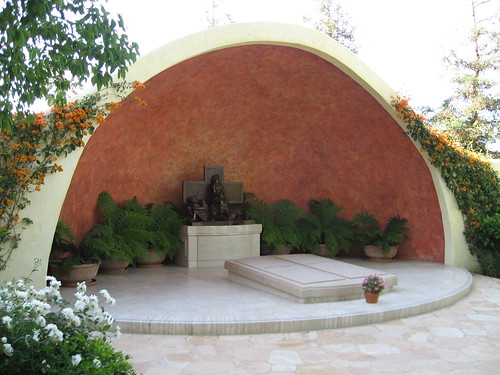
The tomb of Hope.
Mission San Fernando Rey de España is a California Historical Landmark and is also listed on the National Register of Historic Places.
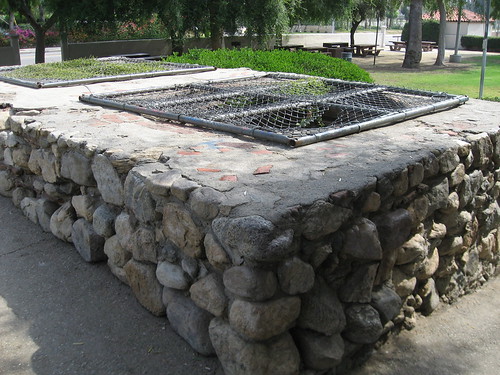
The mission's original tallow pits/soap works in Brand Park.
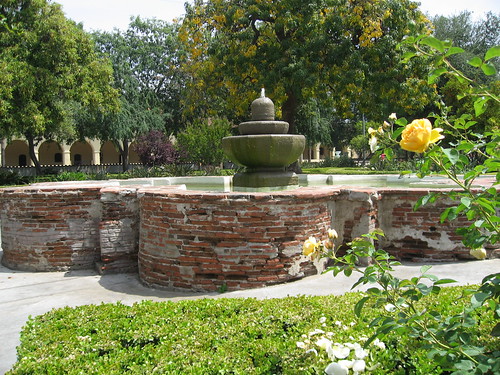
Also across the street in Brand Park, the mission garden's fountain (1812-1814), moved 300 feet from its original site in 1922.
Up next: Oak Tree
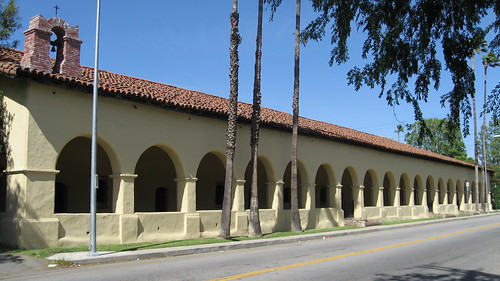
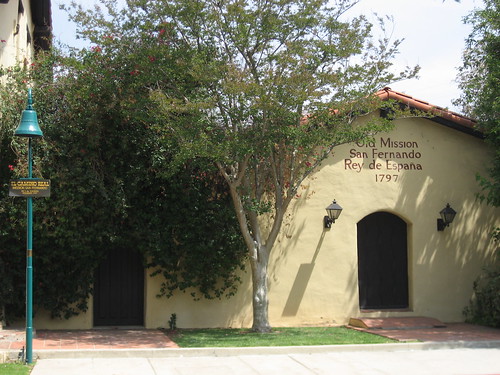
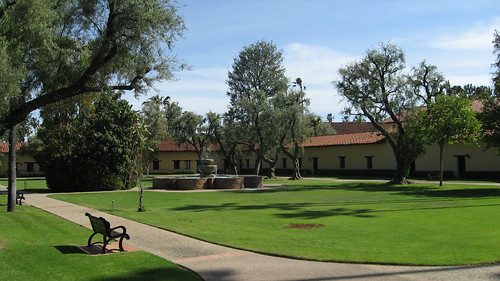
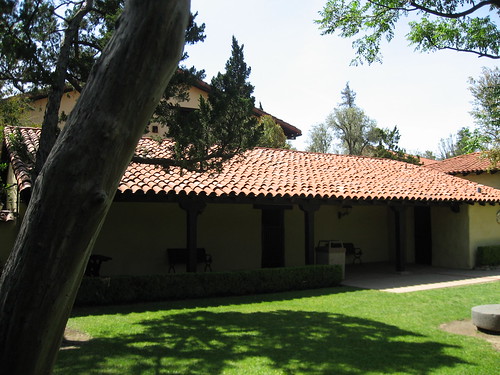
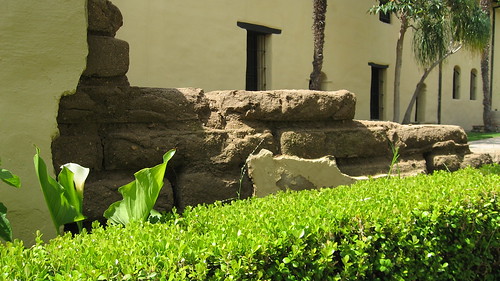
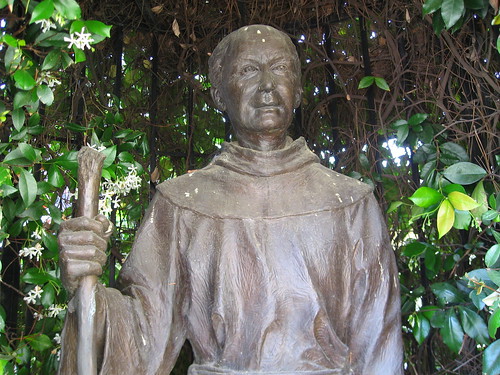
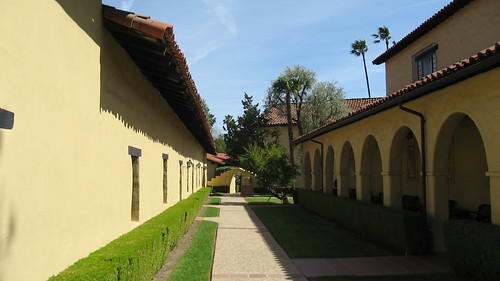
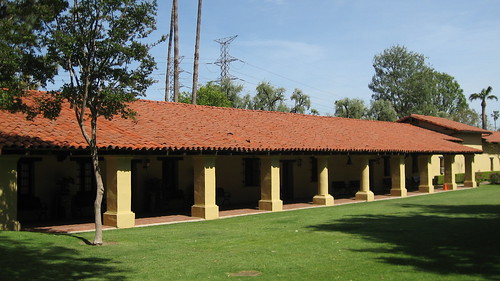
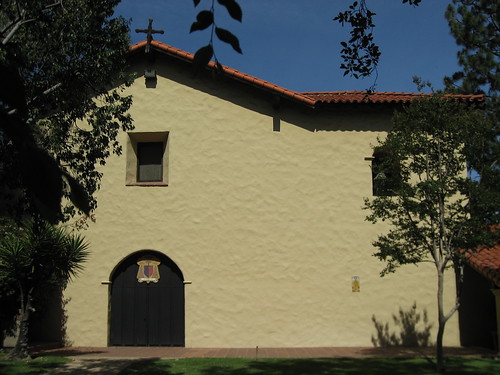
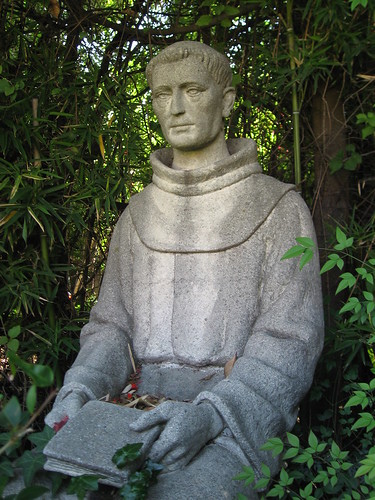
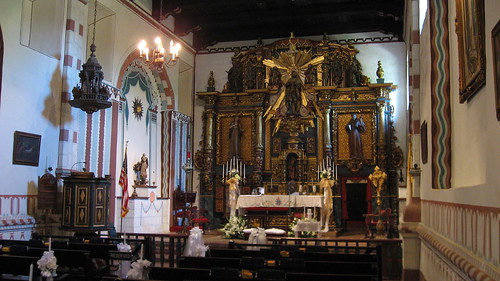
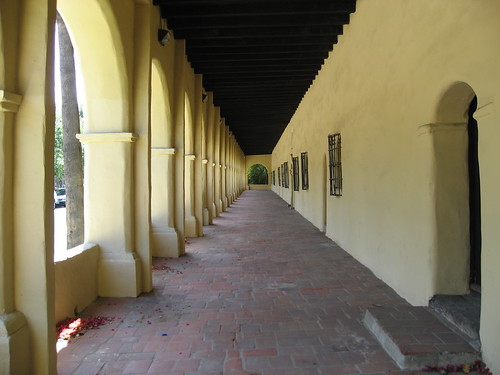
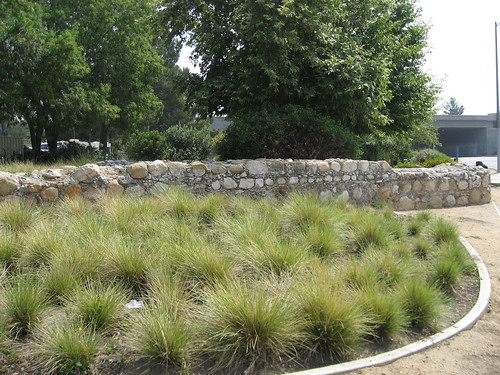
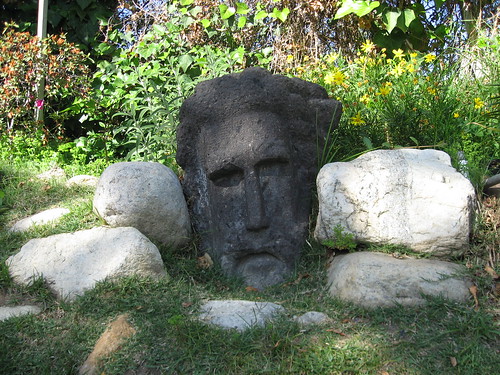
wow floyd! you took pics right next to my highschool, Alemany. I used to ditch and hang out round those parts with the other alterna-teens at school!
ReplyDeletenice job. love the blog. very informative.
-jx!
wow!your website was quite interesting.I learned quite a bit for my mission project.I went to go visit the mission and brand park I learned so much I know I'll get a good grade catch you later
ReplyDeleteThanks a ton for stopping by, Sherry.
ReplyDeleteI was looking at the pictures and was having a problem recognizing things. Then I read about the earthquake. I used to attend mass at the Mission in the 1960's. I left the area in 1967. I used to look at those well worn tiles on the floor and wondered how many people had walked on them. They were doing work on the main building of the Mission and I was able to see many things. Thanks
ReplyDeleteCynthia Beverforden